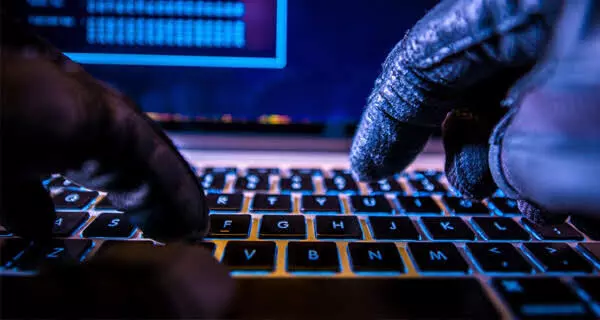FedEx Scam: How a Hyderabad doctor was scammed of Rs 1.6 Cr, two Gujaratis arrested.
The cyber fraudsters threatened her by displaying fictitious cases and letters from the RBI and Supreme Court and demanded money
By Sistla Dakshina Murthy
Scammers using fake vehicle e-challan links to steal bank account info, warn Hyderabad police
Hyderabad: Cyber fraudsters posing as Mumbai police defrauded an elderly Secunderabad resident out of Rs 1.60 crore. They threatened her by displaying fictitious cases and letters from the RBI and Supreme Court and demanded money using fraudulent FedEx scam.
The team of Cybercrimes police station, Hyderabad have arrested two accused in the case identified as Sagar Goradhanbhai Prajapati aka Sagar Prajapati and Parmar Kirit Nathubhai. The duo are natives of Gujarat.
The police seized Rs 10.08 lakh, 17 cheque books of different accounts, 22 debit cards of different bank accounts, eight pass books of different accounts, two mobile phones, six stamps of shell companies, five sim cards and a laptop from the possession of the accused.
Case details
A 74 year old Doctor, filed a complaint with cyber crime that fraudsters contacted her through a video conference call posing as from Andheri Police Station, Mumbai that there is a case against her for money laundering fraud.
They asked her to come to Andheri Police station for investigation. If she doesn’t come, Hyderabad Police will arrest her and will bring her to Andheri PS. They asked her that she can be investigated with a video conference, for which she accepted for video call.
The fraudsters sent her some fake documents i.e., Case file, Letter of Reserve Bank of India, Letter of Supreme court of India, Letter of Central Bureau of Investigation-India. Out of fear she has transferred the amount of Rs. 1.60 crore- in two bank accounts believing that she may be arrested by the CBI.
Modus Operandi
Sagar and Parmar came in contact with the prime accused Deepak Rawat, a resident of Kolkata, who is named as A1 one in the case. They all hatched a plan to cheat the innocent people on the pretext of Fedex courier fraud. Parmar and Hiren (A4) in association with Sagar operated the current bank accounts and also provided the current bank accounts on commission basis. They deposited amounts in the supplied bank accounts.
Hiren helped Sagar and Parmar in opening and providing the current bank accounts. In order to execute their plan, they opened a current bank account in SBI bank in the name of Mandavrayji Steel Private Limited and wherein got deposited the amount of Rs 60 lakh from the victim on the pretext of FEDEX courier fraud. On May 19, Parmar and Hiren took a room in a hotel at Amroli, Surat, stayed there for three days to commit cyber frauds.
They trapped the victim by following the instructions of Sagar and operated the bank account transfers for receiving amounts in SBI bank and from there transfer the fraud amount to multiple bank accounts on May 22. They received a huge amount of Rs 2.15 crore from various bank accounts pertaining to innocent people on the same day. The amount POH in NCRP portal is Rs 10,00,000.
The accused persons used to sell the Bank accounts on commission basis on the transactions carried out in those accounts to the absconding prime accused Deepak Rawat, native of Kolkata who cheated innocent people on the pretext of fraudulent Fedex scam and got the amount deposited into the Bank accounts provided by them. Initially the amount was transferred into one Beneficiary Bank account. On analysing the Bank account technically it was found that total 10 cases were registered in all over India on the same bank account.
Caution
Public are cautioned, not to believe the fraudulent social media calls and video calls regarding courier on their name containing drugs, money laundering and other country currencies and not to be frightened by the FIRs, arrest warrants, etc., issued on their names by CBI / Mumbai crime branch and not to transfer money to the accounts in the fear of digital arrest.